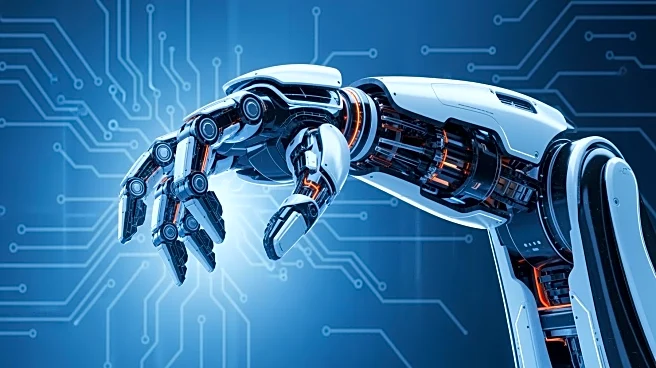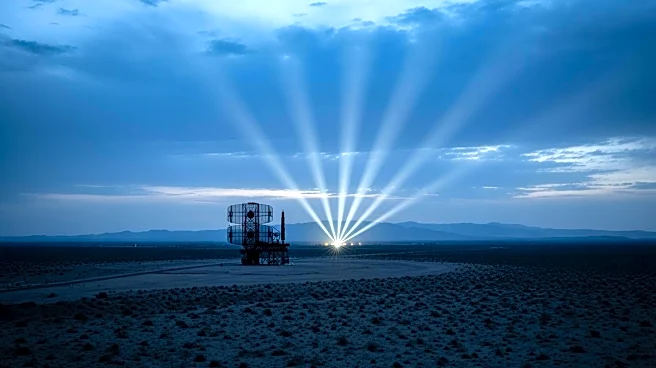What's Happening?
Rodney Brooks, a renowned roboticist and cofounder of iRobot, has raised concerns about a potential 'robot bubble' in the technology sector. In a recent article, Brooks argues that despite significant
investments from venture capitalists and major tech companies, current humanoid robots are unlikely to achieve dexterity. He highlights the early stage of the hype cycle for humanoid robots, contrasting it with the declining hype around artificial intelligence. Brooks critiques the ambitious claims made by tech leaders like Mike Cagney of Figure and Elon Musk of Tesla, suggesting that expectations for humanoid robots to have a significant economic impact within the next few years are overly optimistic.
Why It's Important?
The potential robot bubble could have significant implications for the tech industry and investors. If the expectations for humanoid robots are not met, it could lead to financial losses and a reevaluation of investment strategies in robotics. The hype surrounding humanoid robots and AI has attracted substantial funding, and a bubble burst could impact the credibility and future funding of tech innovations. Companies heavily invested in robotics may face challenges if the technology does not advance as quickly as anticipated, affecting their market positions and financial health.
What's Next?
As the debate over the future of humanoid robots continues, stakeholders in the tech industry may need to reassess their investment strategies and timelines. Companies might focus on addressing the technical challenges highlighted by Brooks, such as improving robot dexterity and safety. The industry could see a shift towards more realistic expectations and a focus on incremental advancements rather than revolutionary changes. Investors and tech leaders may also need to manage public and market expectations to avoid potential backlash if the anticipated breakthroughs do not materialize.
Beyond the Headlines
The discussion around a potential robot bubble also raises ethical and societal questions about the role of robots in the workforce and their impact on employment. As companies strive to develop humanoid robots, there is a need to consider the implications for job displacement and the ethical use of robotics in various sectors. The conversation may also influence public perception of technology and innovation, shaping how society embraces or resists new technological advancements.









